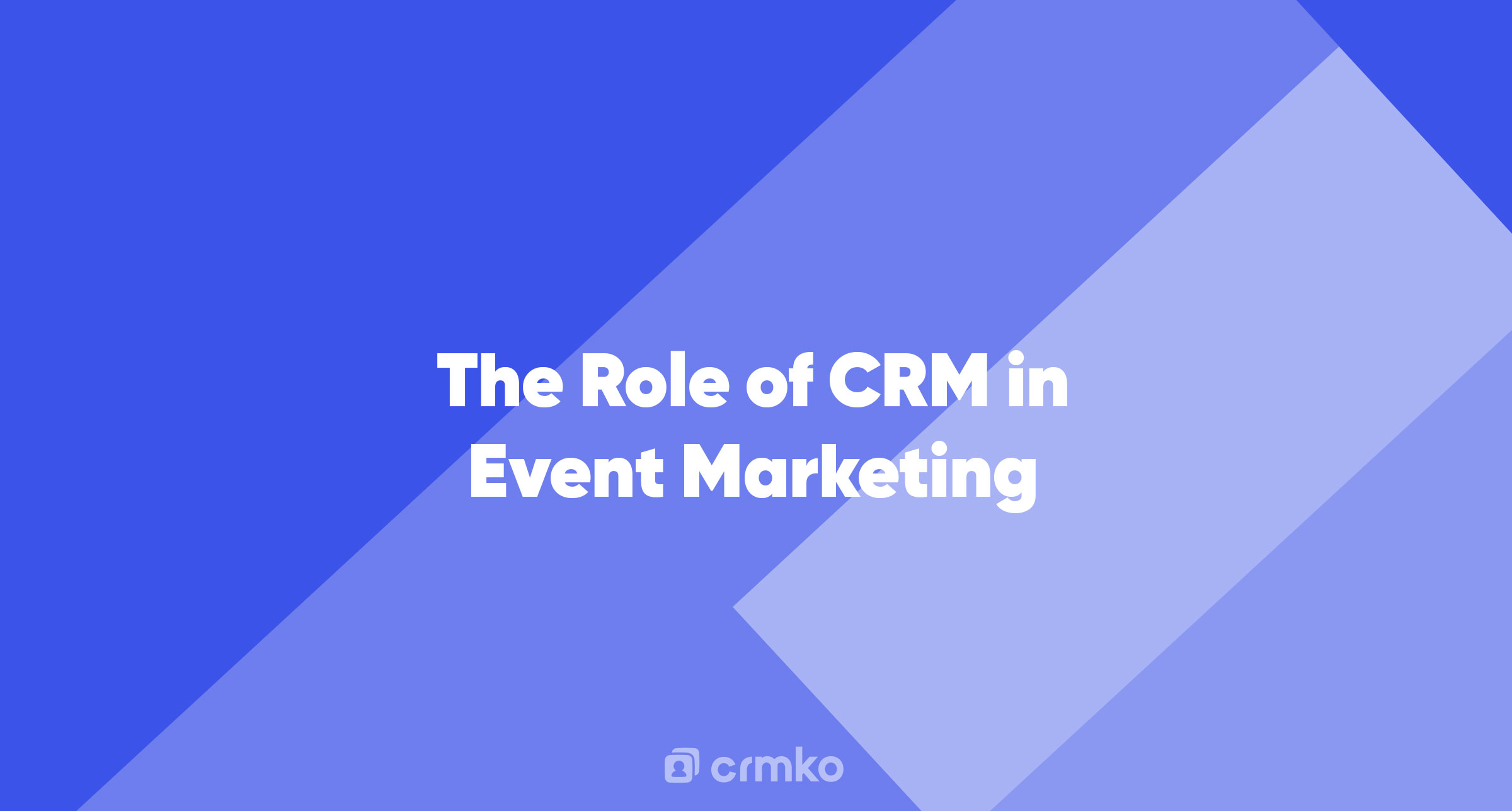Event marketing, a dynamic and interactive way to promote products, services, and brands, has evolved significantly over the years. With the rise of digital platforms and tools, marketers have a plethora of resources at their disposal to make their events more impactful. One such tool that has revolutionized event marketing is the Customer Relationship Management system, commonly known as CRM. In this article, we will delve deep into the role of CRM in event marketing, highlighting its significance and benefits.
Understanding CRM and Its Importance
CRM, or Customer Relationship Management, is a technology used to manage a company's interactions with current and potential customers. It uses data analysis about customers' history with a company to improve business relationships, focusing primarily on customer retention and driving sales growth. But how does CRM fit into the world of event marketing?
The Symbiosis of CRM and Event Marketing
Event marketing is not just about hosting an event. It's about creating meaningful interactions, fostering relationships, and ensuring that attendees become loyal patrons of your brand. This is where CRM steps in. Here's how:
- Targeted Invitations: With CRM, you can segment your audience based on various criteria like past interactions, purchase history, or preferences. This segmentation allows for sending targeted invitations, ensuring that the right people attend your event.
- Personalized Experience: CRM stores detailed information about each customer or lead. This data can be used to offer a personalized event experience. For instance, if a group of attendees has shown interest in a particular product, a dedicated demo session can be organized for them.
- Feedback Collection: Post-event feedback is crucial for improvement. CRM systems can automate feedback collection, ensuring that you get insights into what went well and what didn't.
- Lead Tracking: Not everyone who attends your event will become a customer immediately. CRM helps in tracking leads, ensuring that potential customers are nurtured and engaged until they make a purchase.
- Analytics and Reporting: One of the most significant advantages of using CRM in event marketing is the analytics. You can get detailed reports on attendee demographics, engagement levels, conversion rates, and more. This data is invaluable for refining future event strategies.
Benefits of Integrating CRM in Event Marketing
Now that we understand the role of CRM in event marketing let's look at the benefits of this integration:
- Enhanced Engagement: With personalized interactions and targeted content, attendees are more likely to engage during the event. This engagement can lead to better brand recall and loyalty.
- Higher ROI: By ensuring that the right people attend your event and by nurturing leads post-event, CRM can significantly increase the return on investment for your event marketing efforts.
- Efficient Resource Utilization: With CRM analytics, you can identify which aspects of your event were most successful and which weren't. This insight allows for better resource allocation in future events.
- Improved Customer Relationships: At its core, CRM is about building and maintaining relationships. By integrating CRM in your event marketing strategy, you ensure that attendees don't just remain attendees but become loyal customers.
Best Practices for Using CRM in Event Marketing
To make the most of CRM in event marketing, here are some best practices to follow:
- Data Hygiene: Ensure that the data in your CRM system is clean and updated. Outdated or incorrect data can lead to missed opportunities.
- Training: Ensure that your team is well-versed with the CRM system. They should know how to input data, extract insights, and use these insights for event planning.
- Integration with Other Tools: Your CRM system should integrate seamlessly with other event marketing tools like ticketing platforms, email marketing tools, and feedback collection tools.
- Regular Review: Post every event, review the CRM data to identify successes and areas of improvement. This review will ensure that every subsequent event is better than the last.
Conclusion
In the ever-evolving landscape of event marketing, CRM has emerged as a game-changer. It ensures that events are not just one-off occurrences but are integrated into the larger customer relationship strategy. By offering targeted interactions, personalized experiences, and detailed analytics, CRM elevates event marketing from a promotional strategy to a relationship-building tool. As the worlds of technology and marketing continue to merge, the role of CRM in event marketing will only become more significant.
